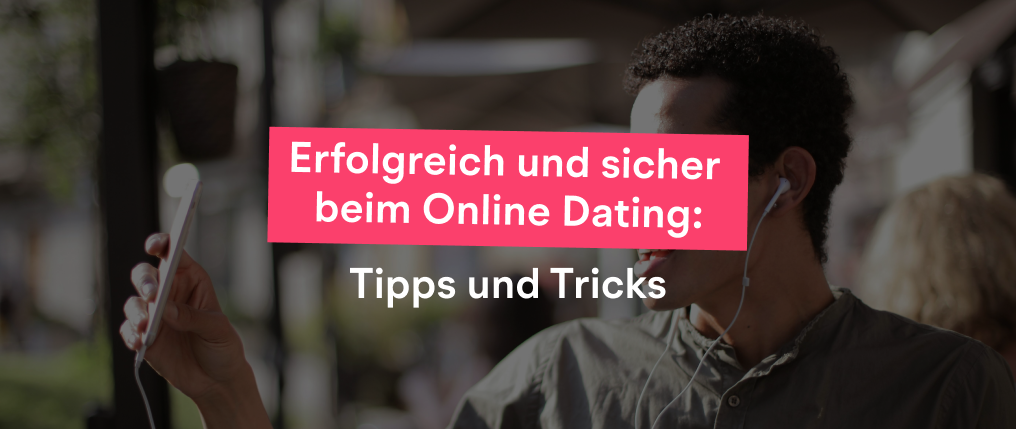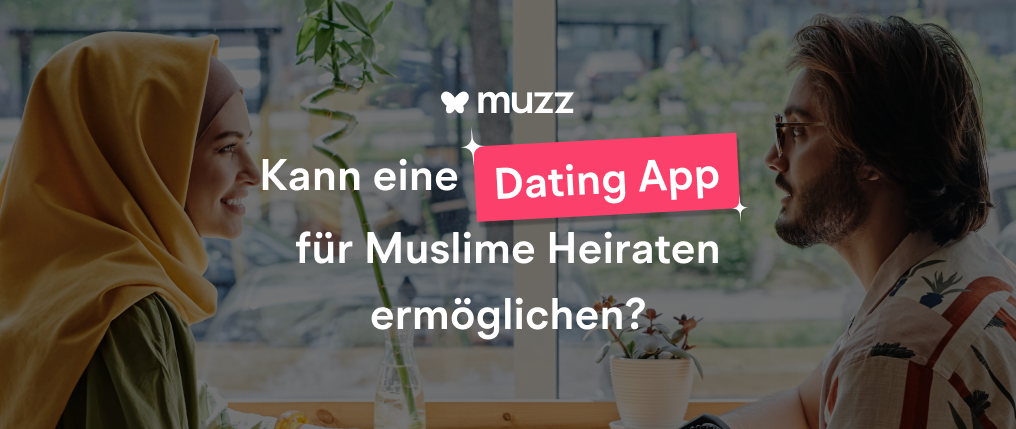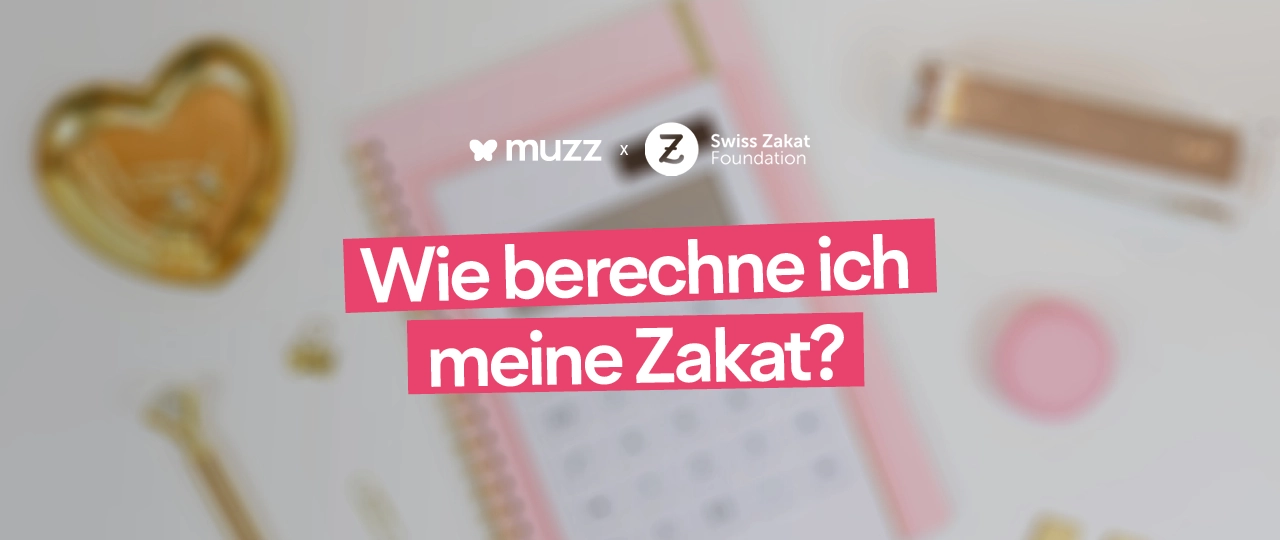
Meet The Muslims Falling In Love On Instagram
February 16, 2017

Young Muslims are increasingly going online to find their soulmate. But can fetishised “Insta-couples” really be the answer to the “marriage crisis”?
Harun O found love in Poland. Well, he found love on Instagram, while he was living there in 2013. He was scrolling through pictures on his phone when he came across a woman living in the south of France who had taken a photo of herself in high heels, wearing a Wu-Tang Clan T-shirt and a turban wrapped around her hair. “I thought it was a really good combination, and I love Wu-Tang Clan, so I must’ve commented,” he says. “We started like that.”


Looking for your soulmate?
You won’t find your soulmate on this blog post but you might find them on Muzz - the world’s biggest Muslim dating and marriage app.
Soon, Harun, who is of Bosnian heritage, was exchanging messages with Hamida Zaourgui, whose family is Algerian, every day.
Three and a half years on, Harun, 30, is now married to Hamida, 29, and both live in London. Hamida pushes the pram with their baby into a Balham coffee shop, out of the pouring rain. We meet over coffee and chocolate brownies to talk about finding love online while Muslim.

“I always thought meeting online was a last solution…but that’s just how it is now,” says Hamida. “I really liked his pictures. And he looked cute, so why not?” When they started talking, Harun had just bought a new phone so he could take better photos. It was the early days of the photo-sharing app and people still edited their shots heavily with the Clarendon filter, which emphasises colour and contrast.
After commenting on each other’s pictures, the pair started exchanging emails. The first was about the sci-fi film Interstellar. Soon they were watching films and TV shows, like the Nordic noir series The Bridge, together on Skype.
They both say they knew they before they physically met, seven months after they first started talking, that they would be getting married. They had the religious marriage ceremony in May the same year in the south of France, and the wedding party in the autumn, and then moved to London.
“What Instagram gave us is that it broadens your horizons,” says Harun. “Otherwise, if you want to meet someone you’re limited to the people around you.”
Hamida says that for a young Muslim it can be more comfortable meeting someone online “because there’s no family, there’s no restrictions. You can talk normally, you don’t have to meet in person. It’s made it easier; there’s less pressure.”

“Because there’s no family, there’s no restrictions” says Hamida Rebecca Hendin / Simon Jacobs / BuzzFeed
“Maybe you won’t believe me telling you that I actually met the love of my life on Instagram – funny but true,” says Sarah Jouini, 26, from Tunisia. Like Harun and Hamida, she’s one of many Muslims who have have married someone they met on Instagram. She uses the tag #MuslimCouples along with #TogetherForever, #hijabi, and #beardy beneath selfies with her husband and tells BuzzFeed News: “It all started with a simple follow, ending [with] sharing a life together.”
Umar Siddique, a 20-year-old basketball player from London, dreams of meeting someone the same way. He gets inundated with marriage proposals on Instagram, and says he has fallen in love with one woman – but she hasn’t replied to his messages. “She doesn’t follow me but if I keep working on myself, keep praying and asking, who knows what Allah has in store for me.”
He thinks his messages “probably got lost in all the other marriage requests she gets daily because she is breathtakingly beautiful”.
Online dating for Muslims is booming. Shahzad Younas, who founded UK-based Muzz, told BuzzFeed News membership more than doubled between December 2015 and December 2016. “We have had over 2,500 people tell us they left Muzz after finding someone on the app,” said Younas. “We have heard back specifically on around 300-plus actual weddings so far around the world.”
Yet romance on the internet is an issue with which my millennial Muslim friendship circle have a love-hate relationship. The problems are many and varied. The lack of decent guys. The issue of catfishing on dating apps. The #goals of interracial Muslim couples. The seemingly ubiquitous habit of random guys sliding into DMs. The jokes about becoming a Muslim “Insta-couple” for the retweets. The incessant “How We Met” YouTube videos. And the biggest question of them all: How does one go about finding love in a halal way online anyway?

There are more than 85,000 posts under the tag #MuslimCouple, more than 100,000 for #MuslimWedding, and nearly 20,000 under #HalalLove. This includes “follow me” photos of couples leading each other through exotic places, affectionate moments, pairs in matching sweaters, selfies of couples performing hajj together, and countless wedding photos. There are even accounts dedicated to curating photos of Muslim couples, such as “Hijab Muslim couples”, which has more than 107,000 followers.
In most of the photos it is clear the couple, often visibly Muslim with the wife in hijab and husband with a full beard, are married. There is a strong emphasis on marriage being portrayed as idyllic; there is a traditional Muslim saying that getting married “completes half of the religion”.
In fact, some of the Instagram users BuzzFeed News spoke to wanted to be associated only with sharing the lives of married couples, rather than with encouraging Muslims to date online. The owner of the account romantic_muslim_couple told BuzzFeed News in broken English: “Instagram isn’t a place to fall in love. The couples I post everyone is halal couple with legal marriage!!”
One account, muslim.couples, is based in Germany and has over 10,000 followers. The person behind it told BuzzFeed News the account was started because “I hope it shows how funny we are with our marriages and how beautiful Islam is.”
For some, there is more at stake. Nilly Dahlia, a UK-based vlogger, says: “I use the hashtag #MuslimCouple because I want to break the barriers on people’s perception about Muslim marriages. That we aren’t all faced with forced marriages. That we aren’t forced to wear the hijab. That we aren’t oppressed.”
She added: “It’s definitely a refreshing hashtag giving hope to the younger audience that they can have a normal marriage, like the ones they read about or even watch in movies. It’s also why I vlog my life and family. This way people can see how normal a British Muslim family is, which I feel is so important in this current climate.”

Dating online is seen by some as the solution to the much discussed “crisis of marriage”, which is also referred to in some British Muslim circles as “the Muslim spinster crisis”, explains Dr Fauzia Ahmad, a sociologist at Royal Holloway, University of London. Many more women – who are often well-educated, professional, and older – attend Muslim marriage events than men.
“Getting married and staying married is one of the biggest contemporary issues facing Muslim diasporas,” Ahmad writes in an article titled “British Muslims’ relationship crisis”. “Yet it is an issue that many mosques, Muslim organisations, secular legal and welfare services are failing to offer adequate support for.”
Ahead of Valentine’s Day, the City Circle, a network for professional Muslims in London, held a discussion in central London titled “Getting hitched: removing the barriers to Muslim marriages”. The event’s description cited the “huge challenge” of meeting a potential spouse. A comedy night in Stratford, east London, for Muslims to mingle and hear jokes on “singles in the city” next week has sold out. Rooful Ali, founder of Emerald Network, who organised the event, says two-thirds of the 50 people attending are women. “From my observation, guys in the main tend to be less proactive and [less likely to] get themselves to an event.”
From her interview-based research, Ahmad found that British Muslim marriage practices in recent years have witnessed what she calls a “process of rapid social change rendering existing notions of ‘arranged marriages’ as dated”. There’s been a move to “halal relationships” – getting to know each other for the purpose of marriage – she explains to BuzzFeed News over email.
According to Ahmad’s research, educated British Muslim women are finding it hard to attract suitable partners for a variety of reasons. One is the perceived lack of suitable men to match successful women, who may feel “overqualified” for a potential partner, or be older than they might traditionally have been when they want to settle down.
As Tahira, a thirtysomething IT professional with a master’s degree, said in the report: “I feel as though I’ve been to all four corners of the world just looking. Although I haven’t been to South America just yet, [nor] Russia!”

In January 2015, London-based journalist Omar Shahid wrote and published an essay on his blog called “I met a girl on Instagram…7 months later we got married.” In it he wrote about loneliness, and turning to God to ask for a companion. He signed off by writing: “I pray that this piece gives other young Muslims the courage to pursue what they believe to be the right thing to do and not be shackled by cultural norms.”
Omar’s words touched on another possible barrier to finding a partner: While there is an expectation from family and the wider community to get married, it is generally still taboo to talk about dating. One commenter on the piece said it had given them “hope I can find someone.”
When we meet, Omar, now 25, is sitting on a sofa in the lobby of the London flat he shares with the girl he met: Aaminah, 24. A Henri Cartier-Bresson photography book sits on the glass coffee table.
He first spoke to Aaminah when she posted some of her Arabic translation of Ibn al-Arabi’s Metaphysics of Imagination into English on Instagram. She saw Omar share some of the text, and the couple started messaging in conversational Arabic. “Either he followed me or I followed him. Three years later we still haven’t resolved that,” Aaminah jokes.
Omar says social media offers ways to get to know a potential partner that aren’t always available to Muslims offline. “An Instagram profile provides more information, and more reading information, about a person than a single rishta profile you see.” (A rishta is a common South Asian term for a marriage proposal, and can mean anything from visiting a potential partner’s family for tea to sharing a “marriage CV” containing a biography and other data about them.)

Together, the couple started their own matchmaking site, Alif and Ain – named after the initials of their first names in Arabic – in May last year, and say they have had hundreds of British Muslims sign up every week.
Aaminah says her friends saw the way she met Omar as “interesting and cool”. “No one our age is shocked by it. It’s still not the norm but it’s not surprising.”
She points to the way popular beauty YouTuber Chinutay, from Toronto, met her husband Amir, from London, on Twitter when they started talking about Game of Thrones. In her “How We Met” video she tells the story how her future husband decided to fly halfway around the world to surprise her, in their first real-life meeting.
On the other hand, Aaminah explains that there is a generational gap over whether it’s acceptable to meet your partner online with no introduction. “For the South Asian community the concept of having a middle person [such as an aunt to act as a go-between] is very important in getting married. It’s that way you can understand more about the other person’s family, and their status in the community.”
Since she met Omar, online relationships have become more contrived. “Back then in 2013 Instagram was not as curated like today. Now, there is this idea of a double personality. You could be putting up this image of who you are online and it’s not really who you are.”
She also fears that Instagram can encourage a “fixation” with Muslim marriages that look perfect and are curated for others to see. “Young girls and guys making it obvious [they want to get married] sometimes, it makes me cringe – such as putting up pictures of a Muslim couple like it’s ‘super goals’. Super Muslim goals.” Aaminah thinks there’s a place for celebrating relationships, but that at the same time a lot of young people are “fixated” on a picture-perfect idea of marriage that they believe is true to life.
“And it’s not. It’s a completely different ball game. It’s much more intense and requires a lot more work,” she says. “Young people fetishise marriage a lot.”

Back in the coffee shop in Balham, Hamida says she and Harun are nothing like the “Insta-couples” who share countless details of their lives with massive followings. (She has nearly 1,400 followers of the platform, and shares a few photos of family life.) In a meeting of the online and offline worlds, Harun has collated all of the conversations they shared during their internet courtship into a 350-page word document, which he’s hoping to turn into a book, complete with Instagram pictures.
Hamida is critical of the instant celebrity some couples get by publicising their relationships online, and particularly concerned with how many of the popular Muslim women Instagrammers are beauty bloggers “selling” unrealistic lifestyles to many young women. “These girls become role models. For other people, maybe it’s a good thing. But for me it’s not,” she says.
The huge pool of possible dates that online dating offers can bring drawbacks too. BuzzFeed News spoke to one woman in her early twenties who wishes to remain anonymous. Speaking over tea in Soho, central London, she says she frequently deactivates her social media accounts when she begins to find interactions intrusive and obsessive, but people have even sent her marriage proposals over LinkedIn.
Many of her friends who are practising Muslims have private social media accounts, won’t accept any follow requests from guys, and may even write “Only sisters” in their bylines to deter advances from men. “With Muslim dating there’s no indication with someone whether they are single and available or seeing someone,” she says. “So many people I know are in that transit [between courting and marriage] and no one would ever know they’re in a relationship.”
She acknowledges, however, that she wouldn’t post anything that would make it look like she wasn’t single. “I don’t ever post a picture of me and a guy. I would never post a picture with an Asian guy, otherwise they would think I’m not available.
“People make themselves look like wifey material. One girl I know is always indirectly talking about marriage. And of course guys are replying to her stories to get noticed.”

Ultimately there is a pressure to have a glamorous married life. “Lots of people get married because of the idea of a marriage, and consider who they should be with for their image.”
She says she has been let down by people she has got to know over Instagram. She reconnected with a college crush after he added her and they began talking over direct messages.
“I thought I’d play hard to get and make him chase me,” she says. “But then he found another girl on Instagram and told me he got married. I thought, For fuck’s sake.” She ended up unfollowing him and blocking him.
One guy she had met at a charity fundraiser requested to follow her on Instagram. When she accepted, he liked 20 of her photos in one go. That should have been “a signal” to doubt him, she tells BuzzFeed News. They were together for a year, until she noticed he was liking selfies of many other hijabi girls. “There’s a code of conduct. When you’re with someone, you don’t like other girls’ photos. That’s shameful.”
The ability to send direct messages, introduced in 2013, is the tool “thirsty guys” were waiting for, she says. “I didn’t notice before but then I began to check, and thought, Why is he liking other hot hijabis’ photos?” She broke up with him soon after.
Her experience has led to a radical decision: She wants to be with someone who doesn’t use social media at all, even if it may take longer to find them. “I want someone who is low-key,” she says. “Is it much to ask someone not to be constantly on the phone?”
Source: https://www.buzzfeed.com/aishagani/muslims-falling-in-love-on-instagram?utm_term=.yb1jlRm7D#.bfyQo138l

